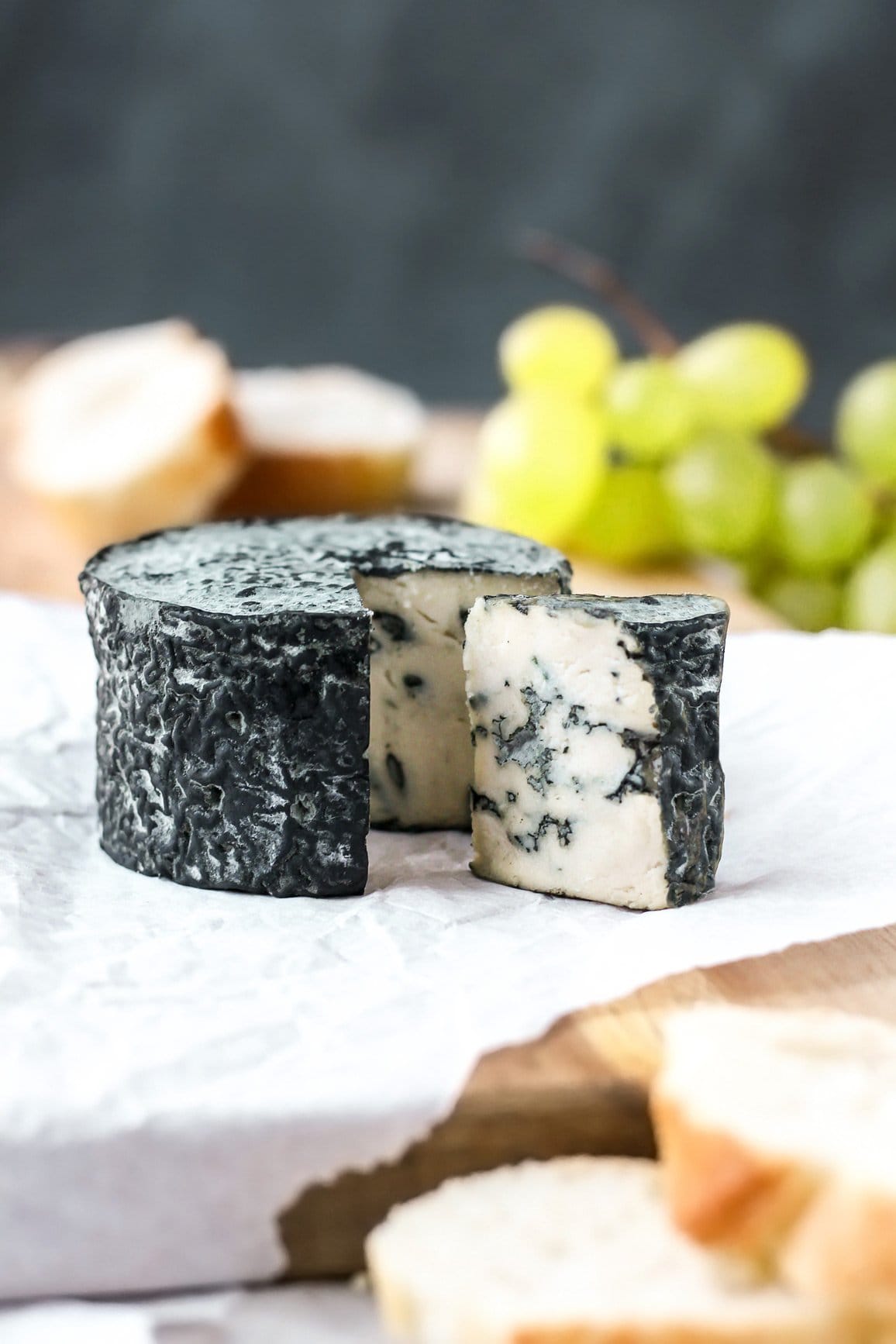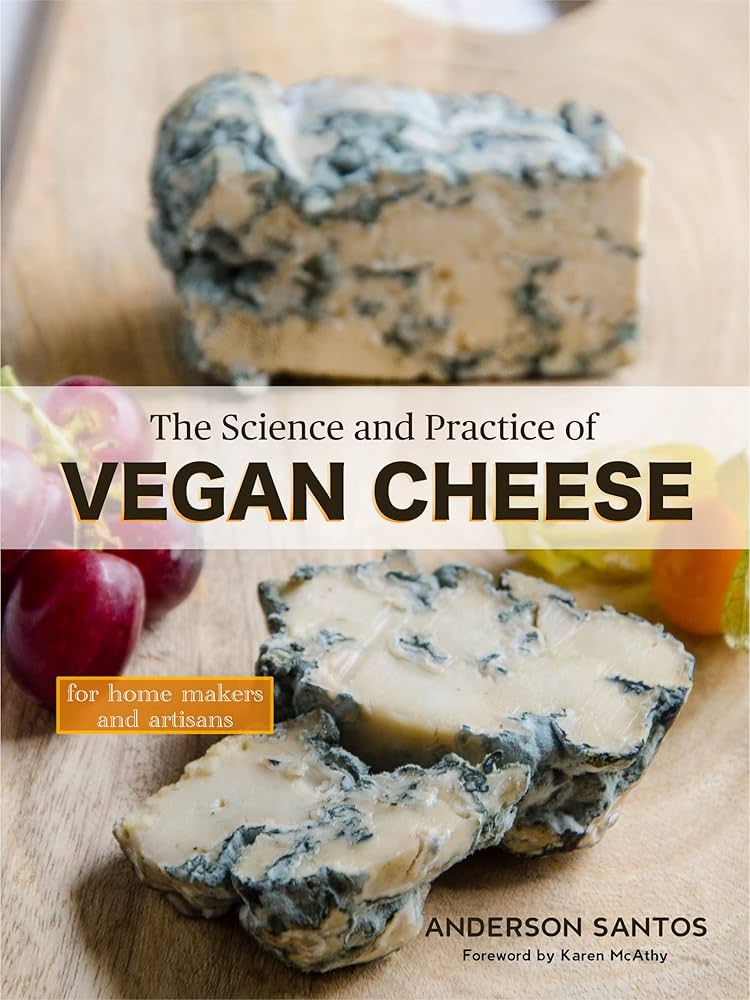Have you ever found yourself staring at that forgotten block of vegan cheese in your fridge, wondering if it’s still good to eat? You’re not alone.
With the rising popularity of plant-based diets, vegan cheese has become a staple in many households, including possibly yours. But unlike traditional dairy cheese, vegan cheese has its own set of rules when it comes to freshness and shelf life.
Understanding whether your vegan cheese has gone bad can save you from an unpleasant culinary experience and ensure that you’re always enjoying your meals at their best. We’ll unravel the mystery behind the shelf life of vegan cheese. We’ll explore how to spot the signs of spoilage, the factors that affect its longevity, and how you can store it properly to keep it fresh for as long as possible. Stick around, because the answers might surprise you and change the way you handle your favorite dairy-free delight.
What Is Vegan Cheese?
Have you ever found yourself wondering what exactly vegan cheese is? You’re not alone. As more people turn to plant-based diets, curiosity about vegan cheese is on the rise. Picture this: you’re at a friend’s house, enjoying a hearty salad topped with slices of what appears to be cheddar, but it’s vegan. How does it taste so similar yet contains no dairy? Let’s dive into the fascinating world of vegan cheese.
Understanding Vegan Cheese
Vegan cheese is a dairy-free alternative crafted from plant-based ingredients. It caters to those who want to enjoy cheese without consuming animal products. Think nuts, soy, or even root vegetables. Each type offers a unique texture and flavor.
Unlike traditional cheese, vegan cheese doesn’t rely on milk from cows, goats, or sheep. Instead, you might find ingredients like cashews, almonds, or coconut oil in your vegan cheese. These components mimic the creamy texture and rich taste of dairy cheese.
The Diversity Of Vegan Cheese
Vegan cheese comes in various forms and flavors, just like its dairy counterpart. You can find it sliced, shredded, or spreadable. From mozzarella to parmesan, the options are plentiful. Ever tried smoked gouda or pepper jack vegan cheese? Each has its own flair.
- Cashew-Based Cheese:Known for its creamy texture, often used in spreads.
- Soy Cheese:Offers a firm texture, suitable for slicing.
- Coconut Cheese:Provides a subtle sweetness, great for desserts.
How Does Vegan Cheese Taste?
The taste of vegan cheese can surprise you. While some varieties closely mimic dairy flavors, others boast unique profiles. Imagine biting into a slice of nutty, tangy cheese that pairs perfectly with your favorite cracker.
Does the idea of cheese made from almonds sound odd? Many people, including myself, were skeptical at first. But one taste is all it took to convert me. The subtle nutty flavor combined with the creamy texture was a revelation.
Health Benefits Of Vegan Cheese
Vegan cheese often contains fewer calories and less fat than traditional cheese. It’s a boon for those watching their weight or cholesterol levels. Additionally, most vegan cheeses are free from lactose, making them easier to digest for many.
Ever had a post-cheese snack stomach ache? With vegan cheese, you might avoid that discomfort. It’s gentler on the digestive system, offering a guilt-free indulgence.
Have You Tried Vegan Cheese Yet?
If you haven’t, what’s holding you back? Whether you’re vegan or just curious, vegan cheese offers a world of flavors and textures. Next time you shop, consider picking up a small block. You might just find a new favorite.
Do you remember the first time you tried vegan cheese? How did it compare to your expectations? Share your thoughts and explore the variety that awaits you.

Credit: fullofplants.com
Ingredients And Production
Vegan cheese can spoil over time. Ingredients like nuts, tofu, and oils can deteriorate. Production methods vary, impacting shelf life. Proper storage is essential to maintain freshness.
Understanding the ingredients and production process of vegan cheese is crucial to determining whether it can go bad. Vegan cheese, unlike traditional dairy cheese, is crafted from plant-based ingredients. These can vary widely, leading to differences in shelf life and spoilage patterns. Let’s dive into the specifics of what makes up vegan cheese and how it’s produced.
Ingredients: What’s Inside Your Vegan Cheese?
Vegan cheese often starts with a base of nuts, seeds, or soy. Common choices include cashews, almonds, and soy milk. These ingredients provide the creamy texture that cheese lovers crave. Additives like nutritional yeast, tapioca starch, and agar-agar are frequently included. They contribute to the cheese-like flavor and texture. Spices and herbs might also be added for a flavor boost. Preservatives are sometimes used, especially in store-bought vegan cheeses, to extend shelf life. However, homemade versions might skip these, leading to a shorter lifespan.
Production: Crafting The Perfect Vegan Cheese
The production process begins with soaking and blending the base ingredient until smooth. This forms the foundation of the cheese. The mixture is then thickened and flavored with the chosen additives. Heat is often applied to help the cheese set and develop a consistent texture.
Fermentation might be used to enhance flavor and texture, but not all vegan cheeses go through this process. Fermentation can impact how long the cheese stays fresh.
Does The Production Method Affect Shelf Life?
The ingredients and production methods significantly influence how long vegan cheese lasts. For instance, cheeses with preservatives tend to have a longer shelf life than homemade versions. Consider the storage instructions. Some vegan cheeses require refrigeration, while others are shelf-stable until opened. Always check labels or recipes for guidance.
What’s the lifespan of your favorite vegan cheese? Knowing the ingredients and production methods can help you make an informed guess. When you understand what’s in your cheese and how it’s made, you’re better equipped to decide how long you can keep it. This knowledge empowers you to enjoy your vegan cheese at its best.
Shelf Life Of Vegan Cheese
Vegan cheese is a popular choice for those avoiding dairy. It’s made from plant-based ingredients like nuts, soy, or coconut. Like all food products, vegan cheese has a shelf life. This can vary based on storage and ingredients. Understanding its longevity helps prevent waste and ensures safety.
Factors Affecting Longevity
Storage conditions greatly influence vegan cheese’s shelf life. Refrigeration is crucial for extending freshness. Temperature changes can spoil the cheese faster. Ingredients also play a role. Nut-based cheeses might spoil quicker than soy-based ones. Preservatives can extend longevity, but not all brands use them. Always check packaging for storage instructions.
Signs Of Spoilage
Recognizing spoilage signs is key to avoiding health risks. Mold is a common indicator of bad cheese. It may appear as green or white spots. Unpleasant odors suggest bacterial growth. The smell might be sour or musty. Texture changes are also a red flag. If the cheese feels slimy, it’s likely spoiled. Always trust your senses before consuming.

Credit: www.amazon.com
Storage Tips For Freshness
Vegan cheese is a popular alternative for those seeking dairy-free options. It can spoil, like other foods, if not stored properly. Keeping vegan cheese fresh involves following specific storage tips. This ensures that your cheese remains safe and tasty to eat.
Refrigeration Guidelines
Refrigerate vegan cheese after opening. Store it in an airtight container. This prevents exposure to air and moisture. Place it in the main part of the fridge. The temperature remains more stable there. Avoid the fridge door. The temperature fluctuates frequently there. Keep it away from strong-smelling foods. This prevents it from absorbing unwanted odors.
Freezing Vegan Cheese
Freezing can extend the shelf life of vegan cheese. Wrap it tightly in plastic wrap first. Then place it in a freezer bag. Remove as much air as possible. This helps prevent freezer burn. Label the package with the date. Use it within six months for best quality. Thaw it in the fridge before use. This helps maintain its texture and flavor.
Comparing Vegan And Dairy Cheese Longevity
Understanding cheese longevity is crucial for maintaining quality and safety. Vegan and dairy cheeses differ in their shelf life and storage needs. By comparing these two, consumers can make informed choices about their cheese preferences.
Vegan Cheese Shelf Life
Vegan cheese often has a longer shelf life than dairy cheese. It contains fewer perishable ingredients. Preservatives extend its freshness. Many vegan cheeses stay good for weeks when refrigerated. Always check the packaging for specific expiration dates.
Dairy Cheese Shelf Life
Dairy cheese tends to spoil faster. It contains milk and other animal products that perish quickly. Soft cheeses like Brie spoil sooner than harder cheeses like Parmesan. Proper storage can extend dairy cheese life. Keep it in a cool, dry place.
Factors Affecting Longevity
Several factors affect cheese longevity. Ingredients play a key role. Preservatives and processing methods influence shelf life. Storage conditions are crucial. Temperature, humidity, and exposure to air matter. Always store cheese according to guidelines.
Signs Of Spoilage
Knowing spoilage signs helps maintain cheese quality. Look for mold or discoloration. Check for off smells or tastes. Texture changes can indicate spoilage. Discard any cheese showing these signs for safety.
Health Implications Of Consuming Spoiled Cheese
Vegan cheese is a popular choice for those avoiding dairy. Like all food products, it can spoil. Consuming spoiled vegan cheese poses health risks. It’s crucial to know these risks to protect your well-being.
How Spoiled Vegan Cheese Affects Digestion
Spoiled cheese can upset your stomach. It may cause nausea and diarrhea. Stomach cramps are common symptoms too. These digestive issues result from bacteria growth.
Potential Allergic Reactions
Eating bad vegan cheese may trigger allergies. Mold and bacteria can cause reactions. Symptoms might include itching, swelling, or hives. Severe cases may lead to breathing difficulties.
Risk Of Food Poisoning
Food poisoning is a serious risk. Spoiled cheese may harbor harmful bacteria. Listeria and Salmonella are common culprits. Symptoms include vomiting, fever, and dehydration.
Impact On Nutrient Absorption
Spoiled cheese affects nutrient absorption. Bad bacteria can hinder digestion. Your body absorbs fewer nutrients, impacting health. This can lead to deficiencies over time.
Development Of Toxins
Spoiled cheese can produce toxins. These toxins are harmful if ingested. They might cause long-term health problems. It’s vital to avoid consuming spoiled cheese.
Extending The Life Of Vegan Cheese
Vegan cheese can spoil if not stored properly. Keep it in the fridge and seal it tightly. Watch for changes in texture or smell.
Vegan cheese is a delicious and versatile alternative to traditional dairy cheese, but like any perishable food, it has a shelf life. If you’ve ever found a forgotten block of vegan cheese in your fridge, you might wonder if it’s still safe to eat. Extending the life of your vegan cheese can save you money, reduce waste, and ensure you always have some on hand for your favorite recipes. Let’s explore how you can keep your vegan cheese fresh and flavorful for longer.
Preservation Techniques
Proper storage is key to preserving vegan cheese. Always keep it refrigerated. The cold temperature slows down spoilage and keeps the texture firm. Consider using airtight containers to block out moisture and air, which can lead to mold. Alternatively, wrapping your cheese in wax paper and then sealing it in a plastic bag can help maintain its freshness. Freezing is another option, but be aware it might change the texture. If you plan to use the cheese in cooking, the change in texture may not be noticeable. Try slicing the cheese before freezing for easier portioning later.
Packaging Suggestions
The right packaging can make all the difference. Reusable silicone bags are an eco-friendly choice that effectively seals out air. If you’re using a plastic wrap, make sure to press it tightly around the cheese to minimize air exposure. Vacuum sealing is ideal but might not be an option for everyone.
Do you have a favorite brand of vegan cheese that comes in a resealable package? Keep the original packaging if it’s resealable, as it’s designed to maintain the cheese’s freshness. By taking these simple steps, you can enjoy your vegan cheese for longer periods, reducing food waste and making the most of your grocery budget. What techniques do you use to keep your vegan cheese fresh? Share your tips in the comments below!

Credit: rebelcheese.com
Frequently Asked Questions
How Do You Know If Vegan Cheese Is Bad?
Check for a sour smell or off taste. Notice any mold or unusual texture changes. Discard if the color darkens or there’s excessive liquid. Vegan cheese should be stored properly to maintain freshness. Always check expiration dates before consuming.
Is It Okay To Eat Expired Vegan Cheese?
Eating expired vegan cheese is not recommended. Check for mold, unusual odor, or texture changes before consuming. Consuming spoiled cheese can cause foodborne illnesses. Always store vegan cheese properly and adhere to expiration dates for safety. If uncertain, it’s safer to discard it.
How Long Does Vegan Cheese Keep In The Fridge?
Vegan cheese typically lasts 5 to 7 days in the fridge. Check packaging for specific storage instructions. Always ensure it’s sealed properly to maintain freshness. If it smells off or changes texture, discard it. Storing in airtight containers can extend its shelf life.
Always refrigerate after opening for best results.
Does Vegan Cream Cheese Go Bad?
Yes, vegan cream cheese can go bad. Check expiration dates and store it properly in the refrigerator. Always observe for changes in texture, color, or smell. Discard if it appears off. For freshness, consume it within a week after opening.
Proper storage ensures the best quality and taste.
Final Words
Vegan cheese can spoil, just like dairy cheese. Check the expiration date. Look for signs of spoilage. Mold, off smell, or texture changes mean it’s bad. Store it properly in the fridge. This keeps it fresh longer. Vegan cheese usually lasts a few weeks unopened.
Opened cheese might last a week. Keep it sealed tight to avoid air. Enjoy your vegan cheese while it’s fresh. Always prioritize safety and quality. Keep an eye out for spoilage signs. This ensures a tasty and safe experience. Enjoy your plant-based delights!

Leave a Reply